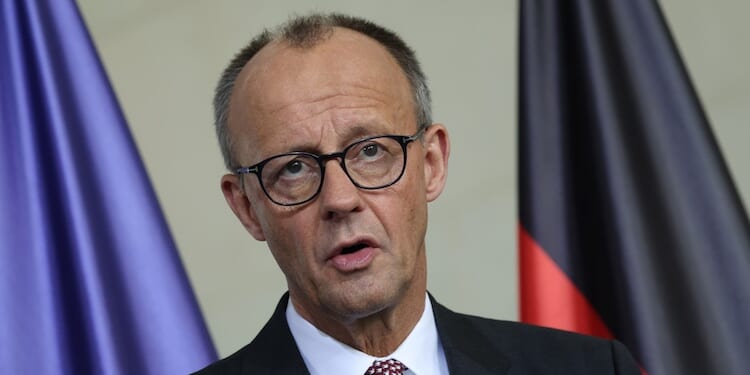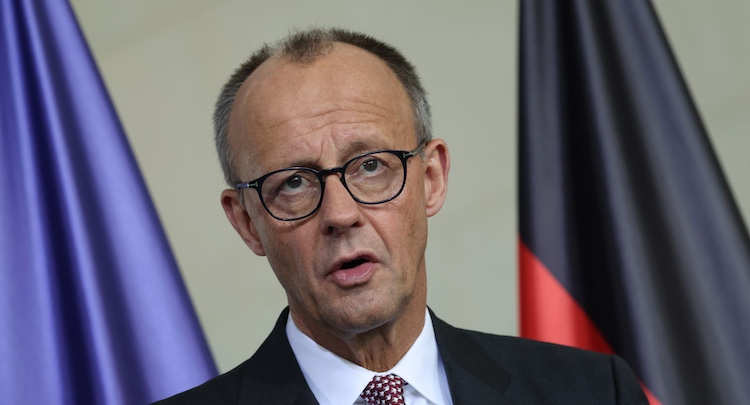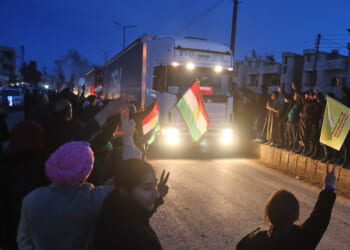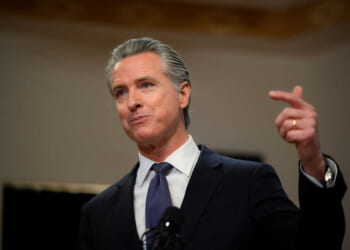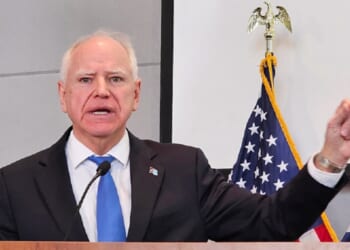German Chancellor Friedrich Merz made a statement that was remarkable, in the context of 2025, for being unremarkable.
“The position of the Federal Republic of Germany must be clear, where we stand,” Merz said to a conference of his party’s youth wing over the weekend. “In the Western alliance. At Israel’s side, dear friends. I have not forgotten that.”
It’s possible the “I have not forgotten that” line was to reassure the party of his commitment to Israel’s security after Merz earned the ire of some on the German right for temporarily suspending certain weapons shipments to Israel during the war. But overall, Merz hardly needs to remind anyone of his moral standing: He has been, in word and deed, a champion of Israel-Europe cooperation and a staunch opponent of any attempt to delegitimize the Jewish state.
In fact both Merz and Austrian Chancellor Christian Stocker have been open about how their countries’ role in the Holocaust informs their policymaking. “I would consider it a fatal mistake to exclude Israel” from Eurovision, Stocker said recently. “Based on our history alone, I would never be in favor of that.”
Their critics on the pro-Palestinian left, meanwhile, consistently try to use that history as a mark against them, arguing that Germany in particular “weaponizes” its guilt to “silence” Hamas’s cheerleaders among artists and entertainers.
This is an essential divide in 21st century politics: between those who believe that past persecution of the Jews requires the current persecution of Israel, and those who believe that the moral lessons of the 20th century include a responsibility to oppose the scapegoating of the Jewish people.
That isn’t just the 20th century’s lesson, of course. It’s the lesson of history. And Merz has found an ingenious way to make it harder and harder for that history to return and claim more victims. One would think that arming the Jewish state would be an important priority for anyone who supports Israeli security. And it is. But Merz knows how effective it can be to reverse that dependency as well.
As the Telegraph reported: “MPs in Mr Merz’s party also told The Telegraph that Germany had become ‘hugely dependent’ on Israeli defence technology, as it faces increased aggression from both Russia and the Iranian regime….
“On the ground, Berlin is already reliant on Israel for intelligence. Last month, three suspected members of a Hamas cell were arrested in Berlin for allegedly plotting attacks on Jewish and Israeli targets in Germany.”
Germany’s rearmament is dependent on Israel, in a simple twist of fate. And that alliance is key to Europe’s long-term security, given that the threats from Russia and Iran won’t stop. The symbolism is not lost on Maj.-Gen. Amir Baram, director of Israel’s Defense Ministry: “The fact that Germany now relies on Israeli capabilities to defend its citizens carries deep historical resonance and stands as a testament to how our relationship is defined not by past wounds but by a shared commitment to prevent their return,” he said.
A senior MP from Merz’s party, Roderich Kiesewetter, agreed, saying that “it is strategically and politically very important, especially on an emotional level of international understanding, that Israel is now helping Germany to rearm.”
Kiesewetter offered an interesting explanation for the turnabout: “While Germany’s focus was on ‘never again war’, Israel’s was on ‘never again defenseless’.”
It turns out that those two principles amount to the same thing. The only countries in Europe subject to full-on Russian ground invasions are states that aren’t part of NATO, such as Ukraine. Those states are being aided by European countries and Israeli weapons technology.
The Russian war effort, meanwhile, is aided by Iran—which has been greatly weakened by Israel, a state whose No. 2 weapons supplier is… Germany.
This is the alliance of democracies acting in defense of freedom. Outside the U.S., it is Germany and Israel leading the way. There’s a lesson there for the rest of the West.

